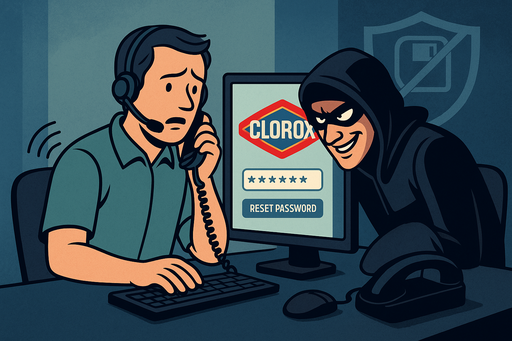Household chemical manufacturer Clorox fell victim to a cyberattack through social engineering. Attackers gained access to the company's systems by simply calling tech support with a request to reset passwords and disable multi-factor authentication.

G. Ostrov
American corporation Clorox, known for manufacturing household chemicals and disinfectants, became the victim of a serious cyberattack. The distinctive feature of this incident lies in the fact that the attackers used one of the simplest yet most effective social engineering methods.
How the Hack Occurred
The attackers did not use sophisticated technical tools or zero-day exploits. Instead, they exploited the human factor - the weakest link in the cybersecurity chain. The criminals simply called Clorox's technical support and impersonated company employees.
During the conversation, they convinced the tech support specialist to perform two critically important actions:
- Reset the password for a corporate account
- Disable multi-factor authentication (MFA)
Attack Consequences
Having gained access to the company's systems, the hackers were able to penetrate the corporate network and access confidential information. The extent of the damage is still being assessed, but the incident has already led to serious operational disruptions in the company's operations.
Clorox was forced to temporarily suspend some production processes and notify regulatory authorities about the incident. The company also initiated an internal investigation and engaged cybersecurity specialists to address the attack's consequences.
Cybersecurity Lessons
This case clearly demonstrates the importance of training employees in cybersecurity fundamentals. Even the most sophisticated technical security measures can prove useless if personnel don't know basic security principles.
Key recommendations for preventing similar incidents:
- Regular employee training on social engineering methods
- Strict identity verification protocols for account modification requests
- Mandatory confirmation of critical operations through independent communication channels
- Implementation of the "never trust, always verify" principle
For more detailed information about cybersecurity measures, we recommend referring to official sources such as the Cybersecurity and Infrastructure Security Agency (CISA).
In case of any problems, contact us, we will help quickly and efficiently!




